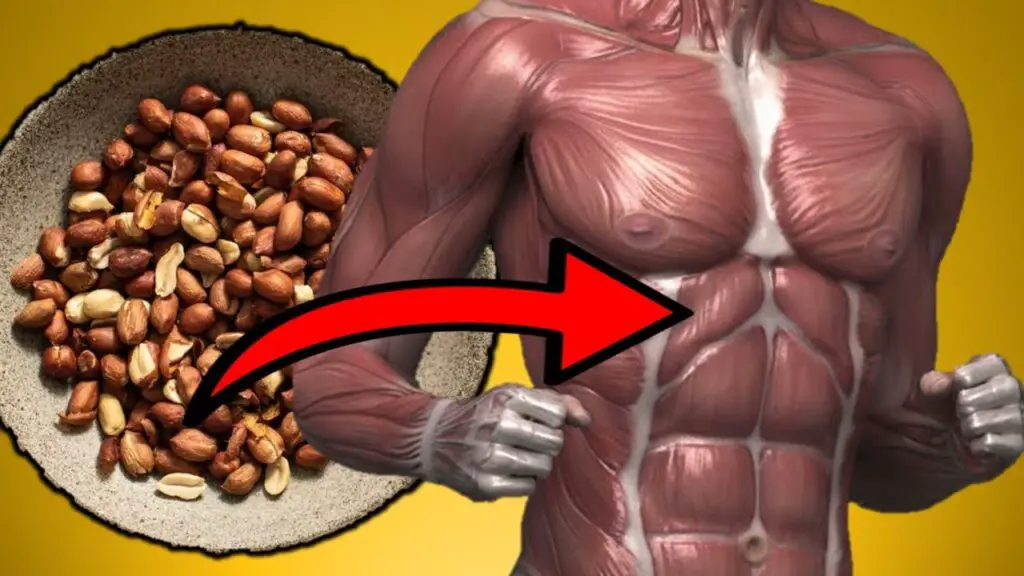Peanuts are popular and widely available all over the world. They can be found in everything from chocolate bars to stir fry sauces, cereals to the global favorite, peanut butter. Unsurprisingly, peanuts are ranked as the number one nut in the whole world, with a total worldwide consumption of more than 42 million in 2018. You might not know, however, that peanuts aren't even nuts - they're classed as a legume, like peas and lentils.
Regardless of how old you are, peanuts are incredibly good for your health. They might not be so healthy when they're combined with chocolate and other sweet stuff, but in their raw form, they're very good for you.
There are so many benefits of eating peanuts. They can help you lose weight, prevent a whole host of diseases, or simply add nutrients to your diet. It's hardly surprising that athletes use peanuts to replenish their energy supply. But knowing the best way to eat this popular legume is important.
Are you eating enough peanuts? If your answer is no, you'll change your mind when you read this guide, which covers the key health benefits of adding peanuts to your diet.
1. Healthy For The Family

If you're trying to introduce healthy foods to your kids, peanuts are a great option. Peanuts are an excellent source of a variety of nutrients, including fiber, healthy fats, copper, minerals and vitamins. Additionally, peanuts are a good source of protein, and are bursting with energy, so they're a great choice for growing children.
Studies have found that eating peanuts helps to promote a feeling of fullness, which means you'll be less tempted to snack on empty calories if you add peanuts to your breakfast or eat a peanut granola bar in the mid-afternoon.
2. Inexpensive Purchase
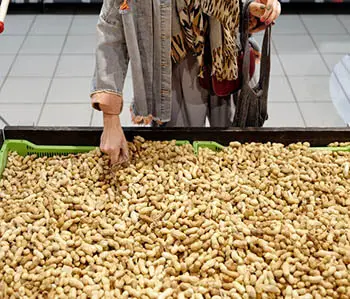
There are some health foods (chia seeds, cacao powder and spirulina, to name a few) that can be really expensive to buy from a supermarket. These types of foods aren't convenient for families with more mouths to feed, or anyone who has a smaller budget to work with.
The great thing about nuts, including peanuts, is that they're usually very affordable. In fact, peanuts tend to be the cheapest of all nuts, especially when you buy them online. Whether they're roasted, boiled, raw or packed into a spread, peanuts are cheap to buy in bulk.
3. Versatile Ingredient
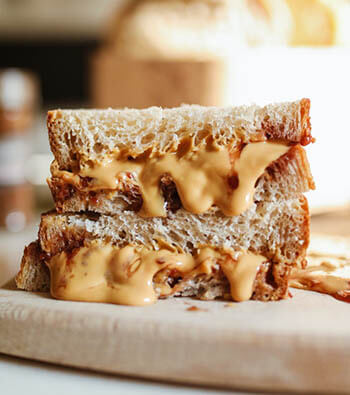
There's so much you can do with peanuts and peanut butter. In their raw form, peanuts can be added to salads, cereals, stir fries and pasta dishes for crunch and flavor. To bring out the flavor even more, try roasting your peanuts in the oven for 10 minutes before using them in your dishes.
Boiling peanuts is another option. When you boil peanuts, they're softer and easier to eat, which may be important for little children or older people. You can add boiled peanuts to your soups and blend them into your sauces. Of course, you can also enjoy peanuts as a protein-rich snack alongside a handful of dried fruit or in a nut mix.
Aside from nut butter, peanuts are used in several other forms, including peanut oil and peanut flour, which is a great gluten-free alternative to white flour.
4. Delicious Taste
There's a reason why peanut butter sandwiches are an American classic. Not only do they take seconds to make, but they're also, more importantly, delicious. You can use peanut butter in all sorts of inventive ways, including as a dip for fruits and veggies. This can be particularly handy if you have children who won't eat anything remotely healthy if the flavor isn't cleverly masked by something else!
5. Year-Round Availability
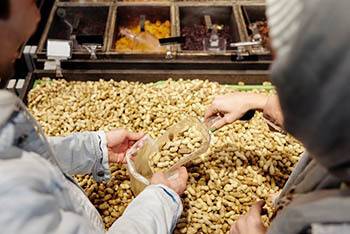
Isn't it disappointing when your supermarket stops selling your favorite fruits and veggies because the growing season is over? Luckily, this isn't an issue for peanuts. You'll find them in your local supermarket year-round, and most peanut products have a really decent shelf-life, too. Stored correctly, you can keep peanuts for up to a year in your fridge or pantry. You can even freeze some peanut products and enjoy them over a longer period of time.
6. Improve Nutrient Intake
One of the biggest health benefits of peanuts is that they can boost our intake of other healthy minerals. One study found that women who ate peanuts had improved intake of calcium, magnesium, folate, zinc, iron, fiber, vitamin E, vitamin A, and healthy fats. These nutrients are important for a whole host of reasons, including heart health, teeth and bone health, reduced risk of anemia, and more. Peanut butter is especially beneficial to pregnant women, and has been found to help prevent neural tube defects in the fetus.
7. Reduce BMI

We all know that losing weight takes a combined effort of increased physical activity and decreased calorie intake. Eating one food certainly isn't enough to help you lose weight.
However, one study found a link between eating peanuts and having a lower BMI (body mass index), which suggests that peanuts may help with weight loss. This is probably because peanuts are rich in protein, which makes them a satiating snack. Eating a handful of peanuts should curb your hunger pangs, so you're less likely to snack on foods that are high in calories but lacking in nutrients throughout the day.
8. Reduce Risk of Diabetes
Type 2 diabetes is a dangerous disease that can wreak havoc on your body. Luckily, it is one of the few diseases that can be reversed with the right changes to your diet and lifestyle.
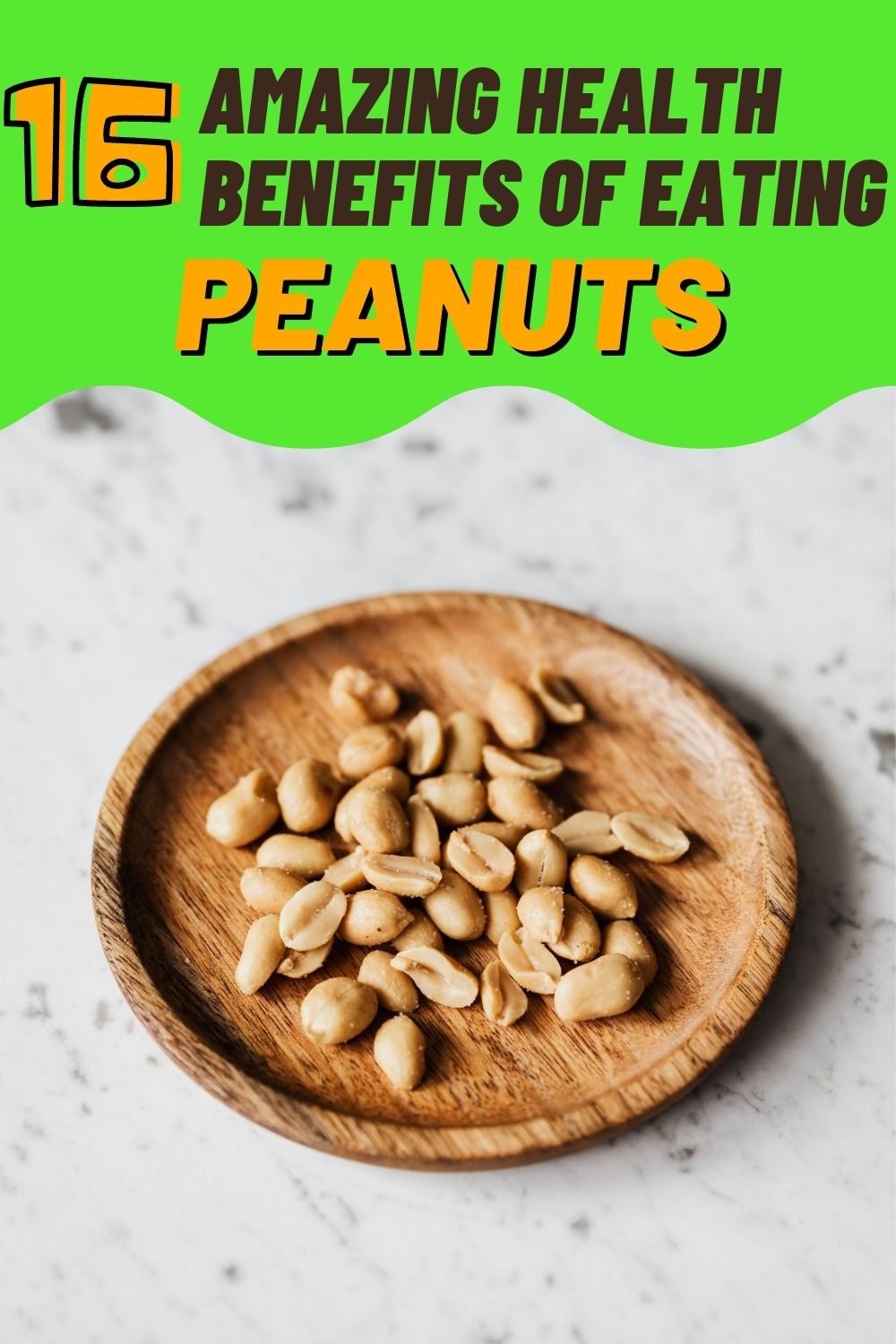
9. Lower Heart Disease Risk in Diabetics
Peanuts contain heart-healthy fiber and oils. They're also a great source of protein, which has been linked to good heart health. There are many steps to keeping your heart healthy, especially if you're diabetic - but one study found that peanuts can significantly reduce the risk of heart disease in diabetics.
Nuts like peanuts are recognized by the American Diabetics Association for their ability to provide essential healthy fats to reduce the risk of heart disease.
10. Lowers Cholesterol Levels
Another of the most impressive health benefits of peanuts is their ability to lower cholesterol levels. One study of post-menopausal women with high cholesterol found that the healthy fats in peanuts can improve cholesterol. You can add peanuts to your diet for a cholesterol health boost no matter what your age. Peanuts are also a source of phytosterols, which work alongside healthy fats to lower cholesterol, too.
11. Reduce Heart Disease Mortality

Because of their good fat content, peanuts help reduce the risk of coronary heart disease. A study found that people who consume nuts like peanuts have a 40% reduced risk of death from heart disease. You're also less likely to be diagnosed with coronary heart disease in the first place if you eat peanuts on a regular basis.
12. Reduce Colon Cancer Risk
Cancer is an incredibly complex disease, and there's still a lot that doctors don't know about it today. Many factors that cause cancer are still a mystery, as are the best natural cancer treatments. However, emerging research into the effects of nut consumption on colon cancer risk found that women who ate the most nuts and seeds, including peanuts, had a reduced risk of colon cancer.
13. Decreased Gallstones Risk
Gallstones disease can be very painful and difficult to treat - and evidence suggests it's a growing problem all over the world. Eating five or more servings of peanuts per week has been linked to a decreased risk of gallstone disease. More research is needed for us to understand exactly why this may be, but what we know so far is promising.
14. Healthy Snack for Children
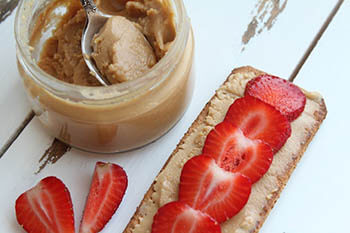
Children are particularly difficult to please when it comes to snacking foods. Most kids have a sweet tooth - and all they seem to want is the sugary stuff. However, you can get creative with peanut butter if you want your kids to eat more fruits and veggies - just offer up PB as a dip! A recent study has found that this is really effective in encouraging your little ones to eat more of their 5 a day.
Because of their protein content, peanuts can also help sustain your kids' hunger and provide them with enough energy to get them through the school day. If you add peanuts to your child's breakfast, they're less likely to be distracted by hunger while they're trying to do their schoolwork.
15. Boost Health of Aging Population
Peanuts can also be a great healthy food for the aging population. Again, their protein content can help seniors retain muscle mass, which only gets more important as we age. Additionally, peanuts contain B-vitamins that can often be accidentally missed out of a senior's diet. Amongst other benefits, B-vitamins are essential for the health of the nervous system, and they can also support proper brain functioning.
16. Reduce Inflammation

Peanuts and peanut butter are a good source of resveratrol, which is an antioxidant plant compound that has been found to protect cell damage and reduce inflammation. This compound has even been linked to anti-aging. Resveratrol is especially common in peanut skins, so choose raw or roasted peanuts with the skin on when you can.
17. Ideal for Athletes

There are many reasons why peanuts are ideal for athletes. They're the perfect plant-based source of protein and fiber, providing the body with the energy it needs for a tough workout. They also contain nutrients like arginine, which is a protein that helps regulate blood flow and acts as a building block for protein.
If you've worked out hard, roasted peanuts are a great food to eat post-workout. The proteins in peanuts are capable of repairing damaged cells and tissues, which can be caused by certain cardio and strength-training exercises.
18. Nutrient-Dense Food
Peanuts offer a lot of the essential proteins that you may be missing if you follow a vegetarian diet. It's a myth that plant-based diets are lacking in protein - you just need to make sure you're getting plenty of protein from the available sources.
Peanuts and peanut products contain more than just protein, of course. They're also rich in many vitamins, minerals, and nutrients that the body needs to thrive, as well as the good fats that can reduce the risk of disease. Being high in calories, peanuts can provide energy to those who find it difficult to put on weight.
Conclusion
Packed with vitamins and minerals, including vitamin E, copper, protein, and healthy fat, peanuts boast numerous health benefits. You can enjoy peanuts however you want - whether that's in main meals, separately as a snack, or even blended into smoothies and sauces. Peanut butter is also a popular choice - organic butters are the healthiest.
High in calories but nutrient-dense and satiating, peanuts are a great food to add to a weight loss diet. Peanuts may also help to prevent disease, according to research, and they're an essential snack for fitness enthusiasts.
Because peanuts are so widely available, you'll never struggle to find them. It's worth looking online and buying big batches of peanuts for cheaper, especially if you have a big family to feed! Just remember, though, that peanuts are calorie-dense, so you should only eat a handful of nuts at a time if you're trying to avoid weight gain.
Hopefully, you now know plenty about the benefits of peanuts. They're certainly worth picking up at your next weekly shop, especially as they're so affordable. Happy snacking!

